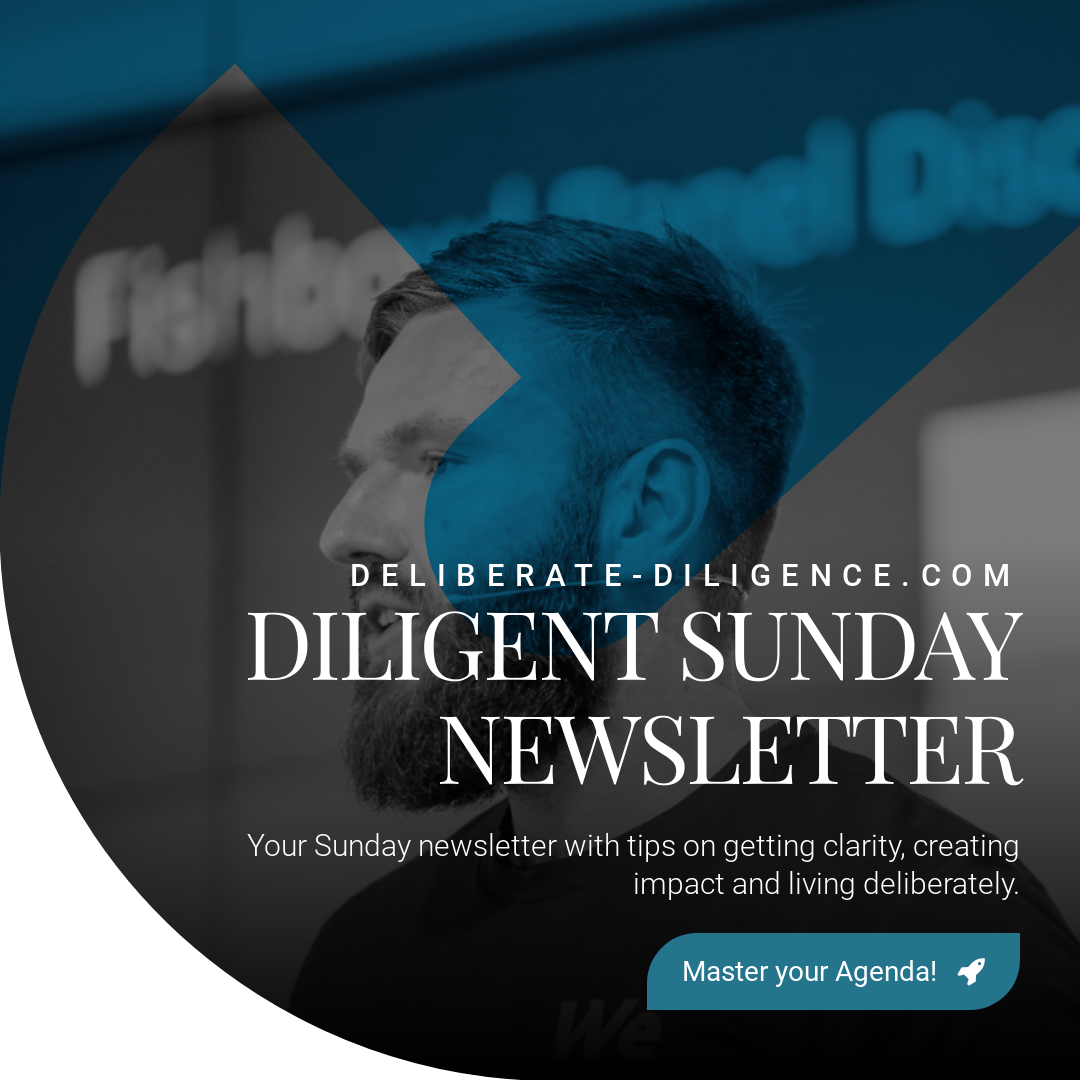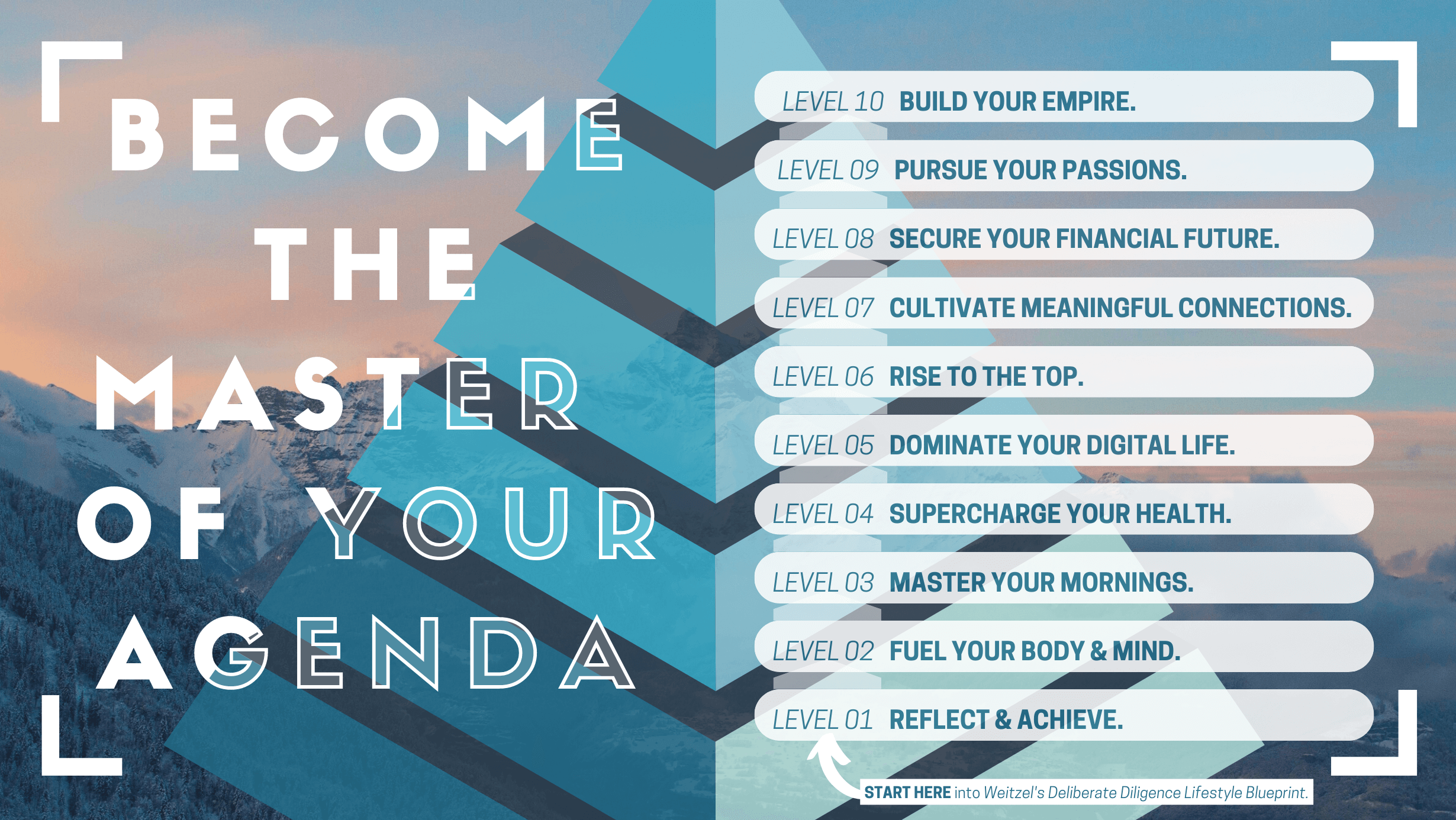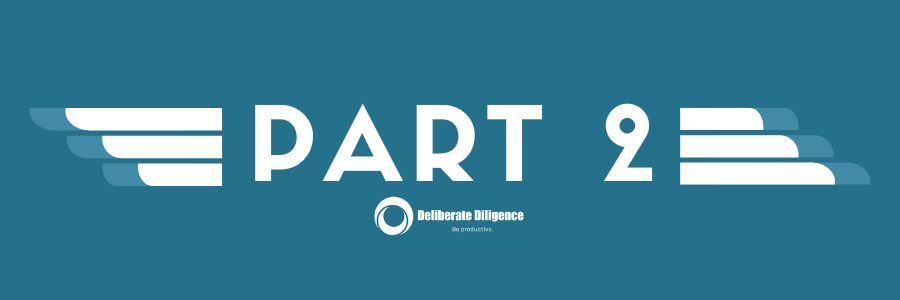Diligent Sunday Newsletter / Issue #15 about Dopamine Detox
Dive into the world of dopamine detox with the Diligent Sunday Newsletter. Learn about its benefits, how to carry out a detox, and 10 exciting ideas to try. Improve your focus, mental clarity, and overall well-being by reducing excessive dopamine hits from social media, caffeine, sugar, and more.

Introduction
Dear Diligent Sunday Readers,
Another week has passed, and 32.5% of the year is over. We have a long weekend here in Germany because May 1st is "Labor Day". So, it's an excellent opportunity to catch up on tasks, rest, or tackle things that require a little more than usual willpower.
This time, I've decided to do the latter. Since my family and I have been indulging in gluttony during our short trip in the past few days, I have decided to finally do what I have been putting off for some time now: detoxing a few of my unnecessary (or even harmful?) habits that I've acquired over the last months and years:
- I drink 8-10 cups of coffee daily and want to go without caffeine for 4 weeks.
- I chew two packs of Airwaves daily - not necessarily unhealthy, but they contain many sweeteners. I want to get rid of them completely.
- I have habitually put hydro tabs (minerals and flavour) in my water. It was only intended for intensive sports in hot weather to counter heavy sweating, but unfortunately, it has crept into my everyday life. It's unnecessary since I enjoy enough taste in normal water and drink enough without additives.
- Additionally, I ate 6000 calories too much in this week's short vacation (almost equivalent to 1 kg of body fat), so I will fast for an additional 48 hours on the weekend to process the excess.
I'm not sure if it's clever to do all four things at once, but when you have a moment of willpower, you should use it. I believe it's good for me to experience my zero point in these things again, at least temporarily.
I'm hoping for the most benefits from the coffee detox, as I've noticed that while I work wonderfully focused in the mornings with all the coffee, I'm pretty exhausted and unfocused in the evenings. I suspect it's because of the coffee. I'll report when I have initial experiences and insights on the effects in a separate blog article.
I can already say that, 24 hours after my last coffee, I'm struggling to concentrate on this newsletter.
Anyway, I'm taking this opportunity to write about the why, how, and what of dopamine detoxing in this newsletter. I hope this article will serve as a helpful guide and inspire you to consider removing something from your life to achieve a healthier and more balanced lifestyle.
Why "Dopamine Detox" and not just "Detox"? I don't think much of the classic understanding of detox, which primarily refers to food. What I find much more important is the mental detox, which is usually about our dopamine. That is also the common denominator in my detox goals listed above. It's not so much about the ingredients, but these are tools to get little dopamine hits. And you quickly get into a self-reinforcing downward spiral, where the little kick that was enough at first is no longer enough, and you consume more and more of it. That's why I drink 10 cups of coffee, not just 3, as I did at one point. And that's exactly why finding the strength to return to zero at some point is essential.
I wish you an extraordinarily successful start to the upcoming 18th week of the year!
Best regards,
— Martin

Today at a Glance:
- 💬 Essay: Why a detox can be helpful.
- 🕵️ Research: How do you best carry out a detox?
- 🗃️ Listicle: 10 Exciting Dopamine Detox Ideas for Everyone.
We are what we eat, drink, and think. So detoxing is not just about cleaning up your diet, it's also about cleaning up your mind and your thoughts

💬 Essay: Why a detox can be helpful.
We live in a world filled with stimulation. It's almost impossible to escape the constant flow of information and sensory experiences. We're constantly seeking ways to stimulate our minds, whether through our phones, social media, entertainment or substances such as caffeine, sugar/sweeteners and alcohol. While these experiences can be enjoyable and engaging, they can also lead to overstimulation and dependence on these dopamine hits.
Dopamine is a neurotransmitter that plays a crucial role in our reward system. It is associated with feelings of pleasure, motivation, and focus. When we engage in activities that release dopamine, we tend to feel good and are more likely to repeat those actions.
However, too much of a good thing can be harmful, and this is where the idea of a dopamine detox comes into play.
The primary goal of a dopamine detox is to reset your brain's reward system by reducing exposure to excessive dopamine hits (like my excessive coffee consumption). This can lead to several benefits, such as improved focus, reduced dependence on unhealthy habits, and a better appreciation for the more minor pleasures in life.
The latter is one of the core benefits I aim for, personally. I am also looking for the feeling of not having so many dependencies in life. For example, I can't go on a long car journey without first preparing two large thermos cups of coffee. Or, when in my hotel room, I can't get into a productive flow in the morning because I don't have the coffee I know from home.
A dopamine detox's advantages and disadvantages depend on the particular detox case (see Part 3 below). However, here are a few general statements:
General Detox Advantages:
- Improved overall health: Detoxing from various substances, such as caffeine, alcohol, and sugar, can improve overall health by reducing the strain on your body's organs and systems.
- Increased energy levels: By cutting back on substances that can cause energy crashes or dependency, you may experience more consistent and stable energy levels throughout the day.
- Enhanced mental clarity: Detoxing can help clear brain fog and improve mental clarity by reducing the impact of overstimulation and dependence on substances.
- Better mood and emotional well-being: Removing addictive substances from your life can improve mood stability and well-being as you become less reliant on external factors for happiness.
- Encouragement of healthier habits: Detoxing can catalyse adopting healthier lifestyle habits, such as regular exercise, proper nutrition, and stress management.
General Detox Disadvantages:
- Withdrawal symptoms: Regardless of the specific substance, detoxing can lead to withdrawal symptoms, such as headaches, fatigue, irritability, and difficulty concentrating.
- Social challenges: Detoxing may present social challenges, as many social activities revolve around consuming certain substances (e.g., drinking alcohol at parties or having coffee with friends). You may need to develop new strategies for socialising and managing peer pressure.
- Temporary discomfort: Detoxing often involves a period of pain as your body adjusts to the absence of a substance it has become accustomed to. This discomfort can make maintaining motivation and commitment to the detox process difficult.
- Risk of over-restriction: In some cases, detoxing can lead to an overly restrictive mindset that could cause harm in the long run. Finding a balance between detoxing and maintaining a sustainable, healthy lifestyle is essential.
- Unrealistic expectations: Some folks may view detoxing as a quick fix for various health issues, leading to unrealistic expectations of immediate and dramatic results. Detoxing should be part of a comprehensive approach to health and well-being rather than a standalone solution.
There, that should give you enough motivation. Now let's take a look at the "how".
"A healthy outside starts from the inside." - Robert Urich

🕵️ Research: How do you best carry out a detox?
I haven't followed any practices or tips with my detoxes. But for your benefit and the sake of this newsletter, I have looked at what is said on the web about what to consider for dopamine detoxes:
- Identify your triggers: Before starting a detox, it's essential to identify the specific activities or habits causing excessive dopamine release. These could include excessive caffeine consumption, social media usage, or even mindless snacking. Using my coffee as an example, whenever I start a new desk job, I always get a fresh coffee first. This is the trigger that I have to replace with something else from now on (e.g. tea instead of coffee).
- Set realistic goals: Don't try to eliminate all sources of dopamine at once. Start by focusing on one or two areas that you believe are causing the most significant impact on your mental well-being. Set achievable goals, such as reducing your daily caffeine intake or spending less time on social media. For example, as part of my caffeine reduction plan, I consciously limited my coffee intake to before 1 pm for a week before the detox.
- Create a plan: Once you've identified your goals, create a plan to achieve them. This could involve setting specific times for activities that usually trigger dopamine release or finding alternative, healthier ways to stimulate your brain. Using the example of my coffee withdrawal, I have tactically placed the withdrawal week after a time when I have drunk a little less coffee anyway due to a trip and can also deal with the most prominent withdrawal symptoms on the weekend (today, to be precise).
- Seek support: Share your detox goals with friends or family members who can support and encourage you throughout the process. They can also hold you accountable and help you stay on track. I communicated my detox goals clearly to my wife. On the one hand, this keeps me accountable; on the other hand, she can also consider this because she knows my nerves will be tense.
- Be patient: Detoxing takes time, and it's essential to be patient with yourself. It's normal to experience withdrawal symptoms, such as irritability or fatigue, but these will subside as your brain adjusts to the changes. For example, while writing this list, I thought about snacking every 10 seconds to counter the withdrawal symptoms. You must summon up the willpower to overcome the initial valley of tears. It will be over soon.
- Monitor your progress: Keep track of your progress throughout the detox. Notice any changes in your mood, focus, and overall well-being. This can help you stay motivated and make necessary adjustments to your plan. I write about my experiment daily in my diary and tick off checkboxes in my "Measure What Matters" habit sheet to reward the successful completion of the detox components.
The length of your detox depends on the specific type. But 4 weeks should generally be a good benchmark.
Here are some sources that offer in-depth information for exploring the topic further:
- Book: Dopamine Nation: Finding Balance in the Age of Indulgence. This book provides an in-depth look into how our modern world has become a dopamine-driven society and offers practical advice on achieving balance through dopamine detox.
- Book: Deep Work: Rules for Focused Success in a Distracted World. This book highlights the importance of focused work in a world of distractions and offers actionable advice for reducing dependence on dopamine-releasing activities.
- Book: Atomic Habits: An Easy & Proven Way to Build Good Habits & Break Bad Ones. Penguin Random House. This best-selling book provides a comprehensive guide to building and breaking habits, with insights into the role of dopamine in habit formation and maintenance.
- Article: Healthline: "Is Dopamine Fasting a Way to Fix Your Brain or a Silicon Valley Fad?"
- Youtube: "How I Tricked My Brain To Like Doing Hard Things (dopamine detox)."
A dopamine detox is not just about giving up your vices; it's about learning to find joy in the simple things.

🗃️ Listicle: 10 Exciting Dopamine Detox Ideas for Everyone.
If you're looking to improve your well-being, consider trying one of these dopamine detox ideas:
- One idea is a digital detox, setting specific device usage hours and reducing screen time. This can lead to improved focus, better sleep and reduced anxiety. You can remove social media apps and use website blockers to prevent mindless browsing. Try to get along without your smartphone for a day or a weekend, or leave it in a drawer.
- Another detox option is mindful eating. This involves consuming whole, unprocessed foods for a stable release of dopamine. This includes increased energy, improved mental clarity and weight management. Be sure to avoid any processed foods and schedule time for cooking.
- If you're a caffeine drinker, consider a caffeine detox. Gradually reducing and eventually eliminating caffeine from your diet can lead to better sleep, reduced anxiety and increased energy levels. I sometimes have nervousness, and I think it comes from the coffee. However, you should expect potential withdrawal symptoms like headaches and irritability.
- Breaking away from monotonous routines is also an option ("Habit/routine Detox"). Productivity-minded people often have solid routines (especially morning routines) in which some activities are carried out on autopilot. This has many advantages but can also lead to feeling constrained by all these routines. Idea: Leave your habits for a week and let yourself drift with your inner flow. Then rebuild your routine according to your current needs.
- A sugar detox is another idea. Eliminating added sugars from your diet can regulate dopamine release, leading to improved mood, weight loss, and overall health. Just be sure to monitor food labels and beware of hidden sugars in processed foods. For myself, my evening hunger pangs disappear when I don't consume more than 50 grams of sugar per day.
- Removing exposure to news and entertainment content can also be beneficial. The news and entertainment detox can enhance focus by avoiding distracting information inputs. If you can't do without, at least allocate specific times for news consumption and engage in more fulfilling activities instead.
- Spending time alone away from distractions and external stimuli is another idea. The solitude detox can lead to increased self-awareness, improved mental clarity and personal growth. For example, you could take a short bike tour or hike on your own that lasts a few days.
- Minimising meetings and focusing on productive work can also be a helpful detox. The meeting detox can increase productivity, improve time management and reduce stress. Just be sure to ensure effective communication with colleagues to maintain work quality. For example, you could introduce a meeting-free Wednesday. I try to keep my mornings completely free. I also have a meeting-free week 1-2 times a year.
- Limiting unnecessary shopping and impulse purchases is also an option. The shopping detox can lead to increased savings, reduced clutter and better financial management. My wife and I only order from Amazon on Sundays to avoid impulse buying. Additionally, sometimes I challenge myself to spend as little money as possible for a few weeks.
- Lastly, consider reducing or eliminating alcohol consumption. The alcohol detox can lead to improved mental and physical health, better sleep and increased energy. I used to have 2-3 beers every evening to wind down, but during a 6-month detox, I learned I could relax just as quickly by reading a good book in the evening.
"Dopamine fasting is a way to remind ourselves that we don't need external stimuli to be happy."

What would be a suitable candidate for a dopamine detox in the next few days or weeks for you? Feel free to share your ideas and plans in the comments or on Twitter/LinkedIn!
For my part, I am going to exercise now to distract myself from my thoughts of coffee and snacks 😂 See you next week!
Best regards,
– Martin from Deliberate-Diligence.com

Discussion